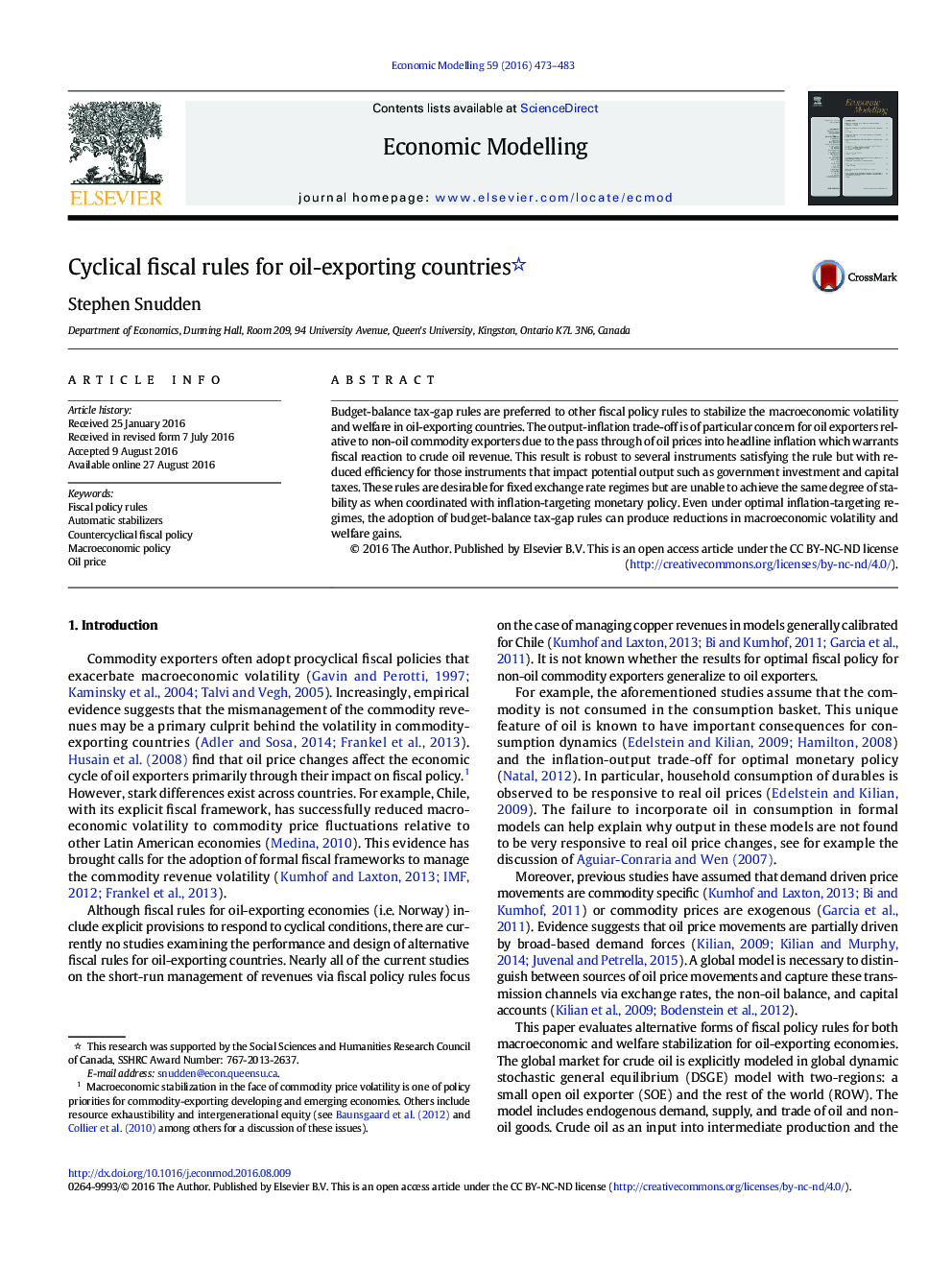| کد مقاله | کد نشریه | سال انتشار | مقاله انگلیسی | نسخه تمام متن |
|---|---|---|---|---|
| 5053310 | 1476510 | 2016 | 11 صفحه PDF | دانلود رایگان |
- Budget-balance tax-gap rules with oil-rent gaps outperform other fiscal rules in oil-exporting countries.
- Petroleum consumption induces an output-inflation trade-off for oil exporters due to the pass into headline inflation.
- The desirability of budget-balance tax-gap rules is robust to several fiscal instruments satisfying the fiscal.
- Budget-balance tax-gap rules can reduce macro, volatility and achieve welfare gains even under optimal inflation-targeting.
Budget-balance tax-gap rules are preferred to other fiscal policy rules to stabilize the macroeconomic volatility and welfare in oil-exporting countries. The output-inflation trade-off is of particular concern for oil exporters relative to non-oil commodity exporters due to the pass through of oil prices into headline inflation which warrants fiscal reaction to crude oil revenue. This result is robust to several instruments satisfying the rule but with reduced efficiency for those instruments that impact potential output such as government investment and capital taxes. These rules are desirable for fixed exchange rate regimes but are unable to achieve the same degree of stability as when coordinated with inflation-targeting monetary policy. Even under optimal inflation-targeting regimes, the adoption of budget-balance tax-gap rules can produce reductions in macroeconomic volatility and welfare gains.
Journal: Economic Modelling - Volume 59, December 2016, Pages 473-483
